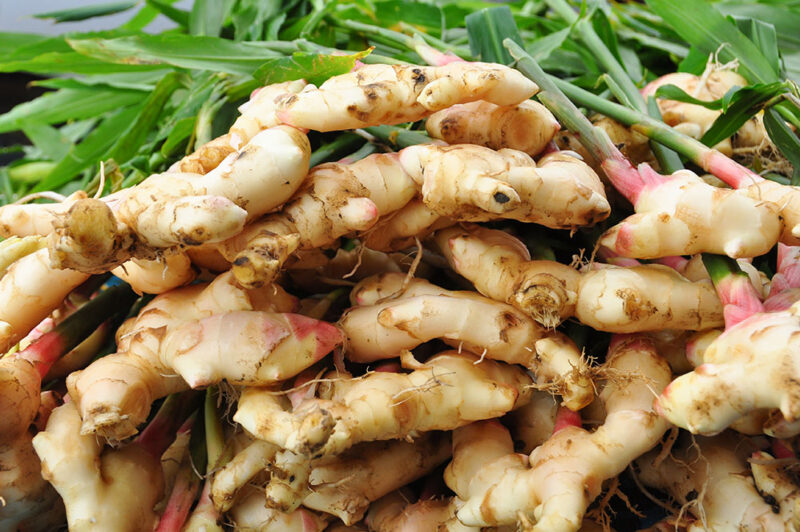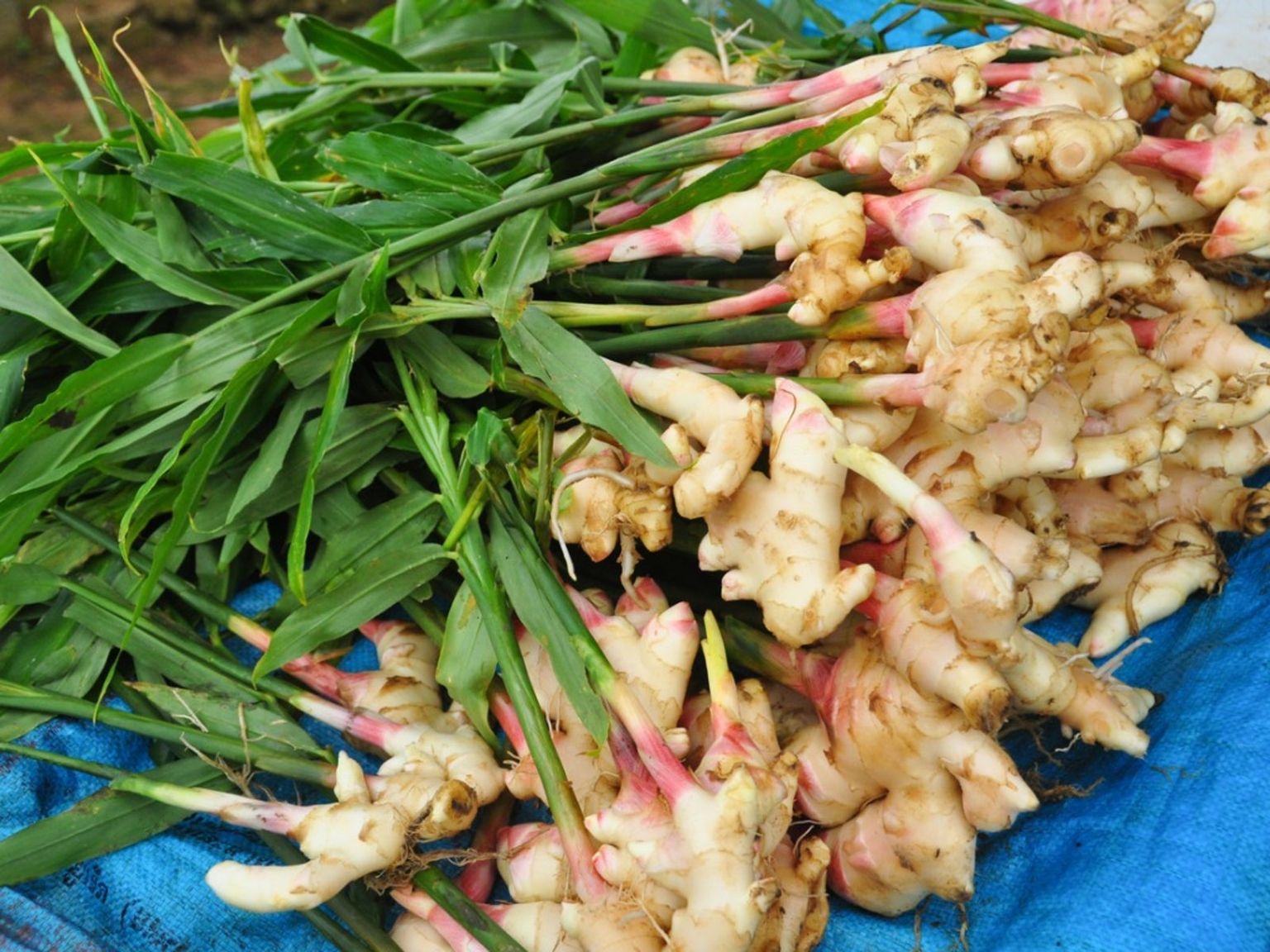Ginger, prized worldwide for its culinary, medicinal, and aromatic uses, is a high-value crop with increasing demand. To cultivate this spicy root successfully, farmers must focus not just on traditional farming techniques but also on maintaining healthy soil. Soil health plays a foundational role in ensuring high yields, quality, and sustainability in ginger farming. This article delves into why soil health matters in ginger farming, the key factors that impact it, and practical ways farmers can promote healthy soil for optimal ginger production.
Understanding Soil Health
Soil health refers to the soil’s ability to sustain plants, animals, and humans through ecosystem functions such as nutrient cycling, water retention, and supporting biodiversity. Healthy soil is teeming with organic matter, beneficial microorganisms, and nutrients, and it has good structure and drainage capabilities. For ginger, which requires a well-aerated, fertile, and slightly acidic soil, maintaining these soil qualities is crucial for robust growth and high yields.
Why Soil Health Matters in Ginger Farming
- Increased Yield and Quality: Healthy soil provides ginger plants with essential nutrients like nitrogen, potassium, and phosphorus, which are vital for root development and overall plant health. Poor soil conditions lead to nutrient deficiencies, which can reduce ginger quality and yield.
- Improved Root Development: Ginger is a rhizome, meaning its roots (rhizomes) are the harvestable part. Soil with good structure, texture, and porosity allows ginger rhizomes to grow freely without resistance, leading to larger, more robust roots that are easier to harvest and of higher quality.
- Enhanced Resistance to Diseases and Pests: Poor soil conditions make ginger plants more susceptible to pests and diseases, such as rhizome rot and root-knot nematodes. Healthy soils with good microbial diversity can help suppress harmful pathogens and enhance ginger plants’ resistance to infections.
- Sustainability and Soil Conservation: Healthy soils are more resilient against erosion and other forms of degradation. By maintaining soil health, ginger farmers can ensure the long-term productivity of their fields, allowing them to continue farming without the need for excessive inputs or land clearing.
Factors Influencing Soil Health in Ginger Farming
- Soil pH and Nutrient Balance
- Ginger thrives in slightly acidic soils with a pH between 5.5 and 6.5. Soil that is too acidic or alkaline may hinder nutrient uptake, leading to poor growth. Regular soil testing helps maintain the optimal pH range and correct any imbalances in essential nutrients like nitrogen, potassium, and phosphorus.
- Organic Matter Content
- Organic matter, such as compost and manure, enriches the soil with nutrients and improves its structure and water-holding capacity. This is crucial for ginger, which needs adequate water but cannot tolerate waterlogged conditions. Organic matter also supports beneficial soil organisms that aid in nutrient cycling and disease suppression.
- Soil Structure and Drainage
- Ginger requires loose, well-drained soil. Poorly drained soils cause waterlogging, leading to root diseases and rot. Sandy loam or loamy soils with good aeration are ideal for ginger cultivation. Incorporating organic matter can improve the soil structure, enhance drainage, and prevent compaction.
- Microbial Activity
- Beneficial microorganisms like mycorrhizal fungi and nitrogen-fixing bacteria help increase nutrient availability for ginger plants. They also contribute to disease resistance and support root development. Practices such as reducing chemical inputs and using compost help promote microbial diversity and activity.
- Cover Crops and Crop Rotation
- Rotating ginger with cover crops like legumes or nitrogen-fixing plants helps prevent nutrient depletion and suppress soil-borne diseases. These cover crops can also improve soil fertility and reduce weed pressure, providing a healthier environment for ginger in the next planting season.

Practices for Maintaining Soil Health in Ginger Farming
- Regular Soil Testing
- Testing the soil before planting ginger and throughout the growing season helps identify nutrient deficiencies and pH imbalances. Based on the test results, farmers can make targeted amendments, such as adding lime to reduce acidity or applying balanced fertilizers to replenish nutrients.
- Incorporating Organic Amendments
- Applying organic compost, green manure, and decomposed plant residues enriches the soil with organic matter, nutrients, and beneficial microorganisms. This practice not only improves soil fertility but also enhances moisture retention and drainage.
- Conservation Tillage
- Minimizing tillage helps maintain soil structure and reduce erosion. Over-tilling can damage soil structure, disrupt beneficial organisms, and lead to compaction. In ginger farming, minimal tillage combined with organic mulch can help retain soil moisture and suppress weeds, creating a better environment for ginger growth.
- Water Management
- Ginger requires consistent moisture, but over-irrigation leads to waterlogging, nutrient leaching, and soil erosion. Using drip irrigation or furrow irrigation methods provides ginger plants with the required moisture without waterlogging. Adding mulch also helps retain soil moisture while reducing evaporation.
- Promoting Beneficial Microbial Activity
- Farmers can use bio-fertilizers, compost teas, and mycorrhizal inoculants to enhance microbial diversity. These inputs contain beneficial bacteria and fungi that increase nutrient availability, protect against pathogens, and support healthy root development, contributing to better soil health.
- Adopting Crop Rotation Practices
- Rotating ginger with crops that enhance soil health, such as legumes, helps break pest cycles and prevents nutrient depletion. For example, growing leguminous plants between ginger seasons enriches the soil with nitrogen, reducing the need for synthetic fertilizers and creating a balanced soil ecosystem.
Conclusion
Soil health is a cornerstone of successful ginger farming. Healthy soil ensures that ginger plants receive adequate nutrients, grow without disease or pest pressures, and develop high-quality rhizomes. By prioritizing soil health through practices like organic amendments, regular soil testing, microbial support, and crop rotation, ginger farmers can achieve high yields sustainably. The long-term benefits include better productivity, reduced input costs, and preservation of soil resources for future generations. For any ginger farmer looking to cultivate a bountiful, quality crop, investing in soil health is essential for both immediate success and long-term resilience in farming.
Ajigofarms is a reliable global agricultural purchase sourcing with profound expertise in the manufacturing, and exportation of food crops. We are tested, and trusted suppliers of all kinds of cash crops and food crops. Our constant supply chain solution makes exporting easy, quick, and safe, we are identified with timeliness and meeting up with deadlines. Regardless of the region you are located in worldwide, you can reliably order your Agric products and be rest assured of successful delivery.




